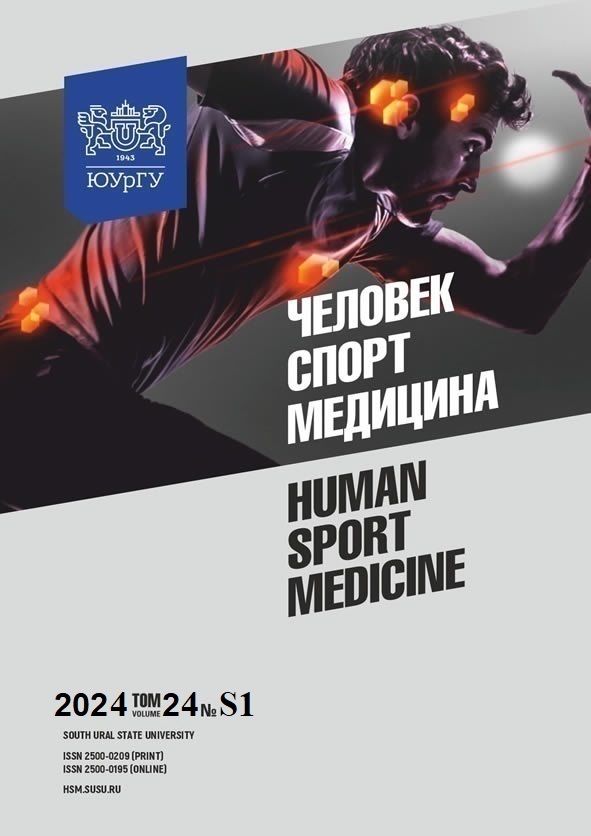AUTONOMIC REGULATION OF EFFECTIVE BETA-STIMULATION IN ATHLETES OF VARIOUS SPORTS
Abstract
Aim. This study aims to explore the autonomic nervous system’s function in athletes across various sports, with a focus on the development of an effective strategy for beta stimulation. Materials and methods. The methodology involved assessing the effectiveness of beta stimulation by the ratio of theta/beta rhythm and the attention index, as well as analyzing the beta rhythm share in EEG. Additionally, heart rate variability indices were identified, and correlation analysis was employed to evaluate the interaction between different physiological systems. The study sample consisted of 1020 young male athletes aged 18-22 years, categorized into five groups based on their sport: cyclic sports (n = 387); speed-strength sports (n = 255); single combat (n = 31); team sports (n = 173); and complex coordination sports (n = 174). The study took place between 2005 and 2023. Results. The findings revealed features of the strategy for achieving effectiveness in training, including a preference for game sessions and a beta rhythm share in EEG ranging from 45 to 60%. The study also demonstrated an insignificant to moderate interaction between the beta rhythm, attention index, and stress index, with the autonomic tone remaining within the normotonic range. Conclusion. The effectiveness of beta stimulation is influenced by specific autonomic regulation characteristics, which vary depending on the sport, the type of biofeedback session, and the stage of the training course.
References
References on translit
Copyright (c) 2024 Human. Sport. Medicine

This work is licensed under a Creative Commons Attribution-NonCommercial-NoDerivatives 4.0 International License.















